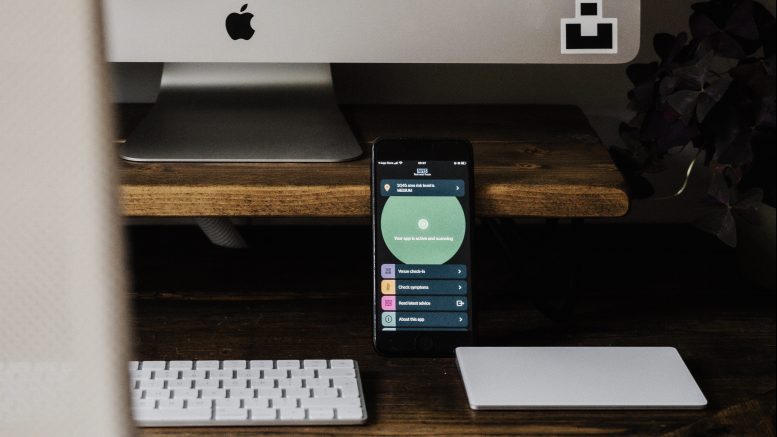How does one feel being in full-time education and working 40 hours a week for the biggest scheme put into place to date to tackle the spread of coronavirus in the UK?
The NHS Test & Trace scheme (T&T) was created in May 2020 and said to be a groundbreaking system to help tackle the virus by PM Boris Johnson.
T&T has been criticised since it first launched. With an initial 25,000 people hired to take part as call handlers, the first calls were not made until early June, despite people starting work for the scheme in mid-May.
– Covid:19 Vaccine: How does it work and who can have it?
– Covid-19 Vaccine: Allergy sufferers to give their past history reactions and GPs getting ready
The government, especially Dido Harding, who is head of the NHS Test and Trace programme, were criticised for the deficiency of the system. Receiving backlash due to a number of people working as tier 3 calls handlers who spoke to the media, saying that they were paid to be watching Netflix as there was not a single call for days or even weeks.
The pressure to have an up and running system which would be able to help stop the spread of the virus was even more important, as the UK counted one of the highest numbers of cases across Europe.
From early August, the system started to become more reliable, and over a hundred calls a day were made by a single caller, meaning the reach was far greater and the system was finally responsive.
People working for the NHS Test and Trace system were surprised to see a documentary on Panorama called “Test and Trace Exposed”, which seemed to highlight the issues the system faced when it launched, but not at the time the documentary was released.
One tracer, who wishes to remain anonymous told us: “It was inaccurate. Not that it was fake information, but it was no longer what was happening and I appreciate the fact that we needed a better system, but this isn’t representative of what was really happening.”
“Most of us felt like we were looked at in a bad way for something we could not control, whereas when the documentary was released, we were making hundreds of calls a day.”
The system wasn’t failing anymore, it was the people who were not responding.
While there were many things the system was not the best at, “this is a completely new system, never done before and it takes time to have something new and urgently needed to be fully working.”
As young journalists, VoL wondered how students, in full-time education, managed to cope with a large amount of university work, and a full-time job. So, we reached out to a couple of students who work for the NHS T&T programme.
Students across the UK have had to adapt to their learning experience since early this year, as the UK headed into its first lockdown.
Part-time jobs are often key to students’ lifestyle. They allow them to socialise with their peers and give them a sense of responsibility that they may not have had before going to university.
However, students who are needing a job whilst studying have also faced furlough or in worse cases, termination of their employment.
The London School of Economics and Political Science reported that “more than one in ten people aged 16-25 have lost their job” during the pandemic and just “under six in ten” have seen their earnings fall since the pandemic began.
Whilst many have suffered from substantial financial losses, others have managed to find a full-time job and therefore secure an earning for at least three months.
Though, some got their contract extended and have been working for the scheme since it first began. VoL spoke to a student, Sean, who decided not to reveal his last name, age and location in fear of losing his job.
As a full-time student, not only can find a balance between university assessments and a part-time job be difficult, but it is far more difficult when you have a full-time job. Sean said: “I’ve found that my studies have been made more accessible due to the changes with Covid-19.
“I study a computer-science-based master with the flexibility of recorded lectures and the ability to work from home, it makes it easier to study while working.”
Sean does not have much choice though. He needs a job while studying as he lives away from his family and with his partner, thus to be able to afford his rent and bills, he must work.
As a student, many have felt unsure as to how they can be of help or do “their bit” during the pandemic, Sean mentioned feeling useless at the start, “but as the number of cases increased, I feel like we are making a difference and helping people. I feel like I am doing my part, despite the controversy surrounding the programme.”
“The system has drastically improved since we started back in May. Recently, for the first time, I have felt like the work we are doing is useful at preventing the spread of Covid-19 and I’m rather pleased to be a part of it.”
Though people working for the scheme are now feeling much more useful, the five-day relaxed period from 23 to 28 December, where people will be able to mix with two other households and spend some time with family and friends, poses questions as to whether people who work for Track and Trace will be given well earned time off.
Sean said: “No one wants to be contacted over the Christmas period. I feel like it is important to give both test and trace and the general public a break over the Christmas period.”
“I feel like this will benefit people’s mental health and the system itself.”
He also added that he has worked full-time and studied for a number of years and “due to the changes put into effect with Covid-19, I feel like it’s been easier to study due to less social pressure in regards to letting people down.”
“However, I do try to set some time aside for my friends, to make sure I’m keeping in contact with them. It’s been a tough year for everyone and for many’s mental health, I want to make sure I’m still there for the people I love.”
The anonymity was offered to the people we spoke to for the sake of their employment.
Words: Sam Tabahriti | Subbing: Chloe Rose



